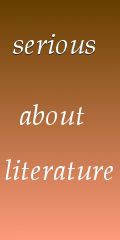|
|
Volitor
|
 Volitor books |

|
News
Reprinted by Clays of Suffolk - November 2021
Volitor books are now available to bookshops via distributors Gardners.
Recently published
Complete Book Reviews by George Orwell
Subtitle: Annotated book reviews by the author of Animal Farm
and Nineteen Eighty-Four
July 1st 2021
Complete Drama Reviews by George Orwell
Subtitle: Reviews of plays and films by the author of Animal Farm
and Nineteen Eighty-Four
July 1st 2021
Revenge is Sour - lesser-known short works by George
Orwell
Subtitle: The Development of George Orwell portrayed in enduring articles and reviews, annotated
February 1st 2021
University library e-books are available from EBSCO
Review of Revenge is Sour in The Independent
24 February 2021:
|
What would George Orwell make of it all today?
John Rentoul reviews a new collection of unknown works that reveal the true Orwell - - - Excerpts: Anyone in search of the true Orwell should read a new collection of his 'lesser-known short works' compiled by Cole Davis. One of Davis's criteria for including essays in the book, apart from "current relevance", "rarity" and "excellence", is that they show Orwell's "development as a writer". Davis's introduction is excellent in briefly tracing the development of Orwell's political thought: it was the Spanish Civil War that gave him clarity. "Although as usual he was interested in picking up literary material, he genuinely wanted to join in the struggle against Franco's forces and was apparently a fearless soldier," Davis writes. Orwell was "cavalier with his wellbeing", getting himself shot in the neck by a sniper: "He had literally stuck his head above the parapet." Not only did the war turn him away from his early pacifism: the repression by Stalinist forces of their former allies in the anti-Franco movement was to lead Orwell "on the path to his almost ceaseless literary vendetta with totalitarianism". Many of the essays in this collection tackle uncomfortable subjects. There is a book review of Mein Kampf... As Davis comments: "Not unusually for him, Orwell is happy to take an unorthodox stance in the most unpromising of situations." Orwell doesn't waste much time on the book itself, but uses it to discuss why there is "something deeply appealing" about Hitler himself. "One feels, as with Napoleon, that he is fighting against destiny, that he can't win, and yet that he somehow deserves to." ... What is typical of Orwell is that, by trying to understand the attraction of Hitler to the German people, he risks mockery by using his personal feelings to explore the subject. He does the same in an essay on antisemitism in Britain, written early in 1945, just before the end of the war. He examines why he is "not immune to that kind of emotion", as a way by which "one might get some clues that would lead to its psychological roots". He writes: "I defy any modern intellectual to look closely and honestly into his own mind without coming upon nationalistic loyalties and hatreds of one kind or another ... that antisemitism will be definitively cured, without curing the larger disease of nationalism, I do not believe." Again, there is a startling similarity between the controversies of three-quarters of a century ago and those of today. Today, Orwell would have provoked a Twitter storm; then he got letters ... Then there was the cancel culture of the immediate postwar period, prompting Orwell to write a defence of PG Wodehouse, who - after the Germans had captured him in France, where he was living - had outraged British opinion by doing "non-political" radio broadcasts from Berlin in 1941. Orwell had little patience with the claim made in "several letters to the press" that "fascist tendencies" could be detected in Wodehouse's books. This is a collection that is wonderfully varied, which captures Orwell's distinctive smoky voice as it grows in confidence, and which offers some unexpected insights into modern controversies, such as those over antisemitism, authoritarianism and public morality. This collection is a good guide to the range of his short life's output. If there is a thread running through it, it is, as Cole Davis, the editor, comments, Orwell's "search for moral and even emotional truths rather than political sophistication". It was this insistence on clarity that gave Orwell's writing its power. It was his clarity of thought, as well as his clarity of language, that made him so fierce in defending the values of democracy and equality against those who claimed to be on the left. |